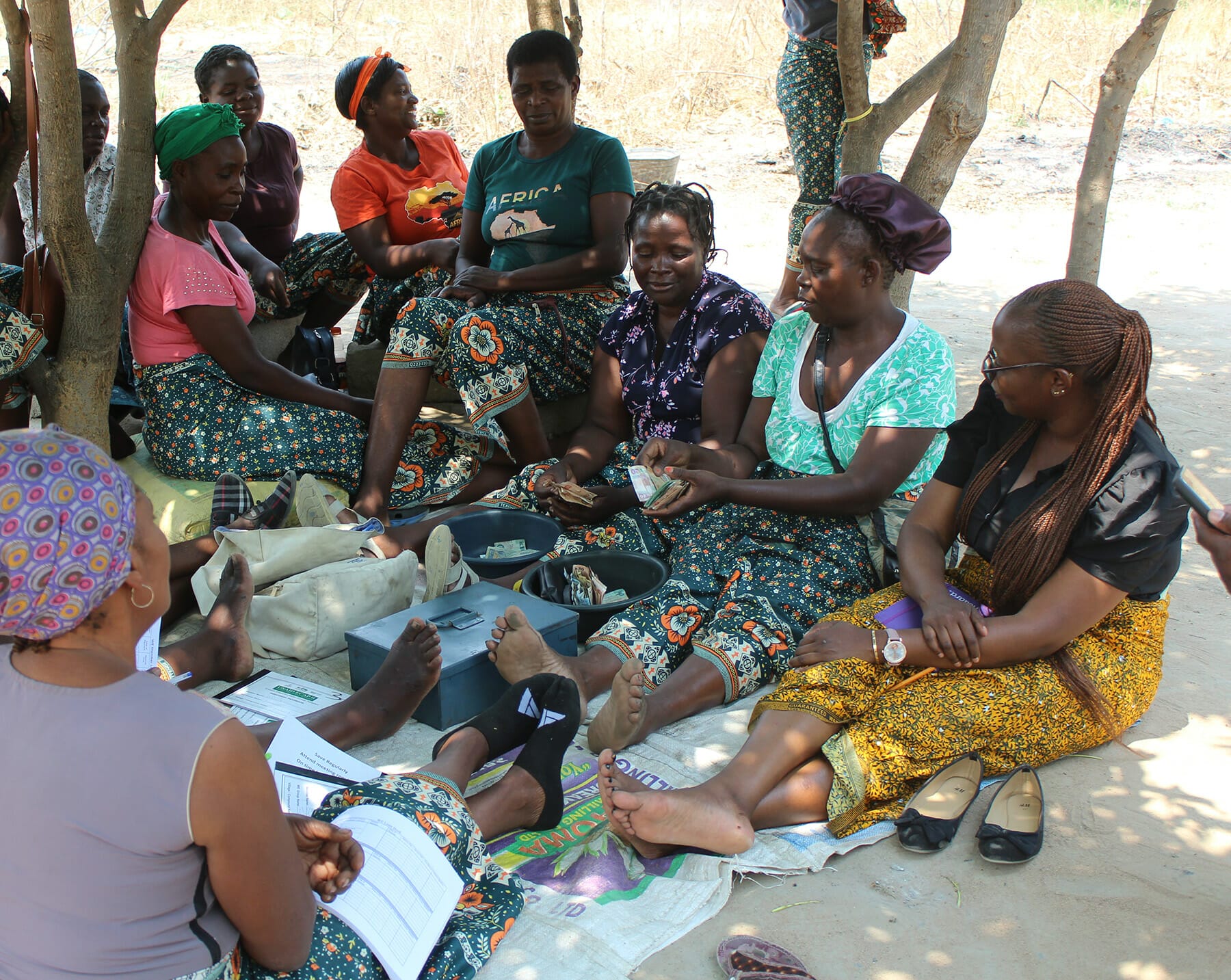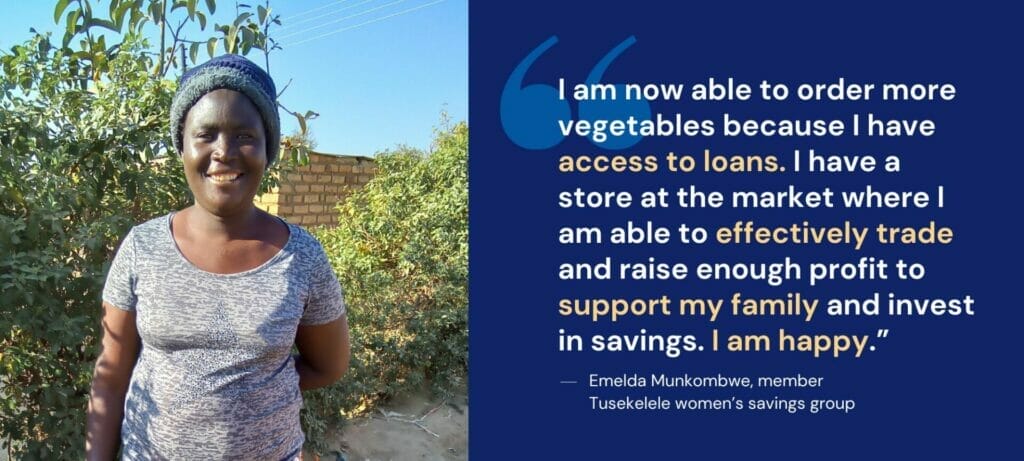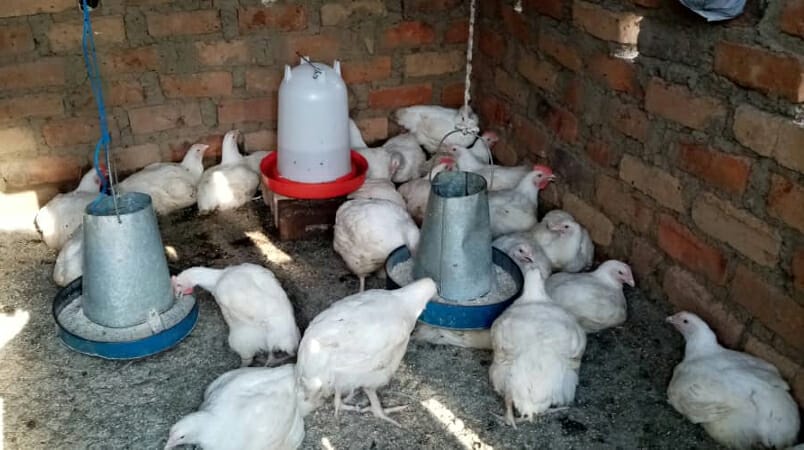News > Blog
Fostering Financial Stability: Co-op Savings Group in Zambia Fuels Women’s Mutual Growth
Published 09/28/2023 by Global Communities

Until recently, Emelda Munkombwe was just scraping by with her tomato business, barely making enough money to put food on the table for her family. There wasn’t anything left to support her children’s schooling, let alone pay for medical services or purchase medications that weren’t provided by the primary health care system.
Education and healthcare are crucial for any young person, but they take on special importance in Zambia, where an estimated 1.3 million orphans and vulnerable children and adolescents (VCA) are infected with, or affected by, HIV.
As a VCA caregiver, Munkombwe is one of many women in her area who has had to grapple with this reality. But thanks to a cooperative savings group supported by the United States Agency for International Development’s Empowered Children and Adolescents Program II (USAID ECAP II) and facilitated by Project Concern Zambia (PCZ), a Global Communities partner, her situation has improved significantly.

Munkombwe is one of 20 women who belong to the Tusekelele women’s savings group, which was formed in May 2022 in the Kalomo District of Zambia’s Southern Province to strengthen the economic status and financial literacy of vulnerable households. All of the participating women are taking care of at least one child or adolescent with HIV or with HIV vulnerabilities, such as having an elevated risk of HIV acquisition, being the child of a female sex worker or being a victim of gender-based violence.
“Tusekelele” means “let’s celebrate” in Tonga, and it’s with that attitude of positivity that the group operates. The women meet weekly to save money; lend money they are saving to each other to help meet the health, social and economic needs of their households; and discuss HIV, sexual and reproductive health, gender and socioeconomic issues affecting them. Specially trained facilitators provide guidance and mentorship on savings principles, basic financial literacy and income generation ideas, as well as guide them through group discussions and connect them to relevant health and livelihood programs in their communities.
Furthermore, USAID ECAP II partnered with First National Bank (FNB) in Zambia to train the women on how to access credit for their income-generating activities and open savings accounts with established financial institutions. PCZ also worked with FNB to create a strategy aimed at linking savings groups’ small businesses to markets.
In early 2023, with USAID ECAP II’s support, the Tusekelele women’s savings group successfully registered as a cooperative and received a grant of 12,000 Zambian kwacha from the Constituency Development Fund, an initiative of the Zambian Ministry of Local Government and Rural Development. The women invested the money into their shared chicken-rearing business; the returns from the investment are reinvested into the group’s savings pot and accessed as loans by the members.

The participating women report that the group has had real impact on their economic situations. When they joined, most members simply sold vegetables, but they have since diversified their small business to include other products such as groundnuts, tubers like cassava and sweet potatoes, maize grains, brooms, beans and peas.
“We have learned how to save money, budget, have business ideas as well as encourage each other to live healthier lives,” Munkombwe explained. “I started saving with 20 Zambia kwacha. By the end of the first cycle, I had 1,200 Zambian kwacha, and in the second cycle I now have saved 5,720 Zambian kwacha.”
Munkombwe said she believes her particular business is well on the road to being self-sustaining, thanks to the group. But the positive changes that she has experienced aren’t limited to finances.
“My children can now go to school and remain in school without worrying that they will go to school on an empty stomach, or they will not have transport to go to school and miss school altogether,” she said. “We are now able to access medical services we need and pay for all the drugs we need.”





